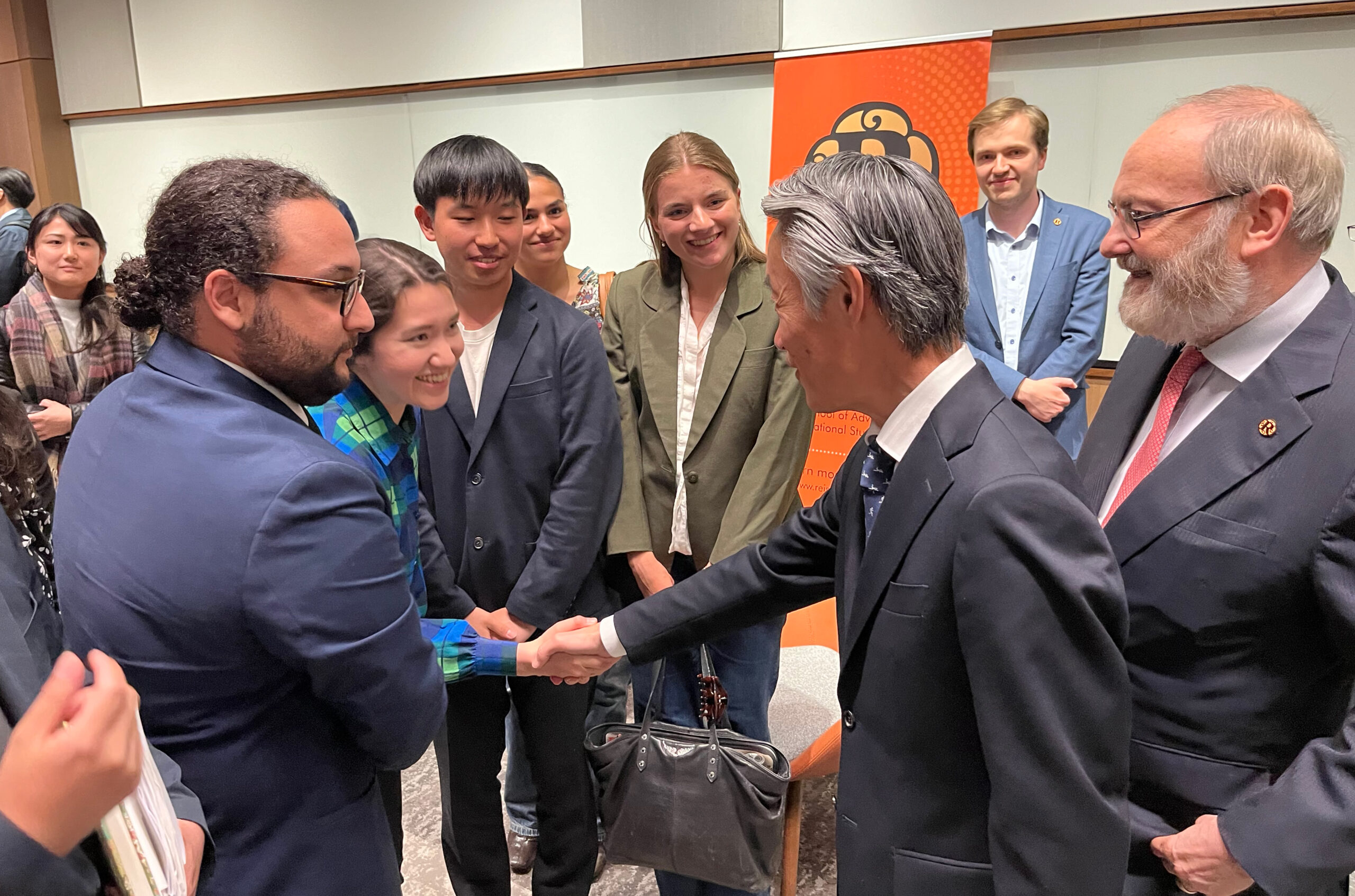Japanese ambassador: Renewed relationship with U.S. is critical to global security
After decades of building trust, the two countries are forming a formidable alliance to uphold and strengthen an international order based on the rule of law

Key Takeaways:
- Japan and the U.S. today share one of the strongest economic and strategic alliances in the world—and it’s only getting stronger, according to Japanese Ambassador Shigeo Yamada.
- Japanese Prime Minister Fumio Kishida’s recent visit to Washington comes at the opportune time to take the Japan-U.S. partnership to a new level.
- One of the key factors driving this deepening relationship is the shared commitment to upholding a free and open international order based on the rule of law, Yamada said at a recent event.
The recently reinvigorated partnership between Japan and the U.S. marks a critical turning point in addressing international security threats and expanding Japan’s role on the global stage, Japanese Ambassador Shigeo Yamada said during a recent Johns Hopkins School of Advanced International Studies (SAIS) event.
“Japan is now ready to play a larger role in the international arena, working closely with the United States as a global partner to meet the challenges we face in this international community,” Yamada told a crowd gathered at the SAIS Reischauer Center for East Asian Studies in his first major policy address since Japanese Prime Minister Fumio Kishida’s April summit with President Joe Biden in Washington, D.C.
One of the key factors driving the deepening relationship is the shared commitment to upholding and strengthening a free and open international order based on the rule of law, particularly in the face of the security threat China poses both regionally and worldwide, Yamada said. It’s also why Japan recently announced a substantial increase in its defense budget to help deter such aggression.
“China’s current external attitude, military activities, as well as other coercive measures have become a matter of serious concern for Japan and the international community,” he said. “It presents an unprecedented and the greatest strategic challenge in ensuring the peace and security of Japan and of the international community.”
The renewed bilateral relationship between the U.S. and Japan—the result of decades of slowly building up trust and friendship—is helping to meet these challenges head on while also providing Japan with an increasingly important role in addressing global security threats, Yamada said. The strengthened U.S.-Japan partnership has also served as a force multiplier, helping to secure a series of meetings and summits and establish regional frameworks with like-minded nations such as South Korea, India, Australia, and the Philippines in order to combat violations of the international order—even those that come from outside the region, such as Russia’s war with Ukraine.
“Today, our views are not only aligned by values, they are aligned economically, and they are aligned on matters of security,” Yamada said. “As our alignment increased, and our trust deepened, Japan and the United States are now working to maintain peace and stability in the Indo Pacific.”
Above all, Yamada said he believes the rejuvenated U.S.-Japan relationship will drive an even greater sense of closeness between the two nations, benefitting the entire international community for decades to come.
“Japan today sees itself as a more positive, influential force in the world than it has ever been. And Japan and the United States have great potential to further develop our partnership,” he said. “In this era of uncertainty, Japan and the United States should invite the future with a vision of hope. We should work for a world that is secure, sustainable, and prosperous, a world based on the rule of law.”